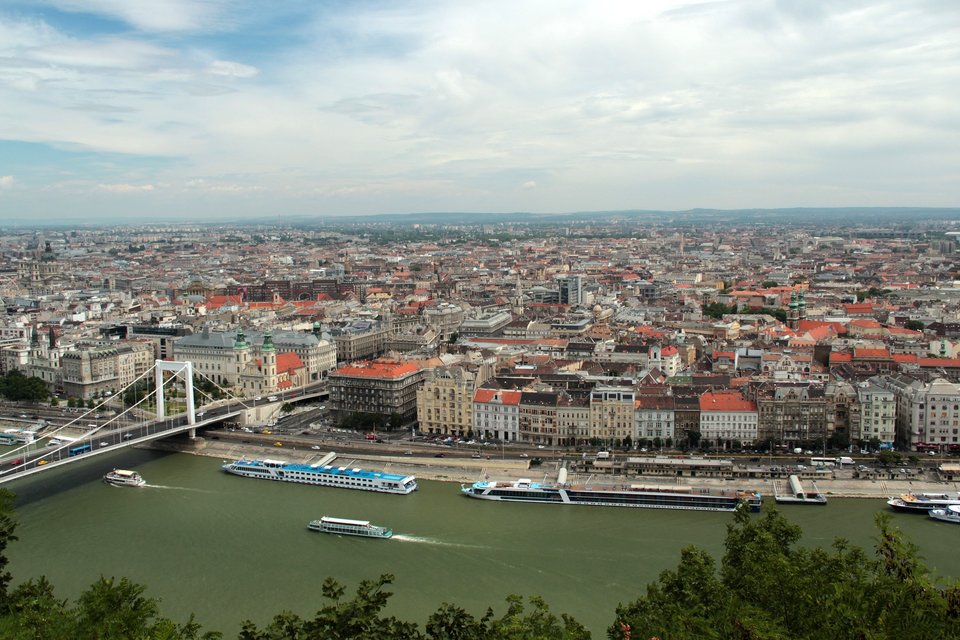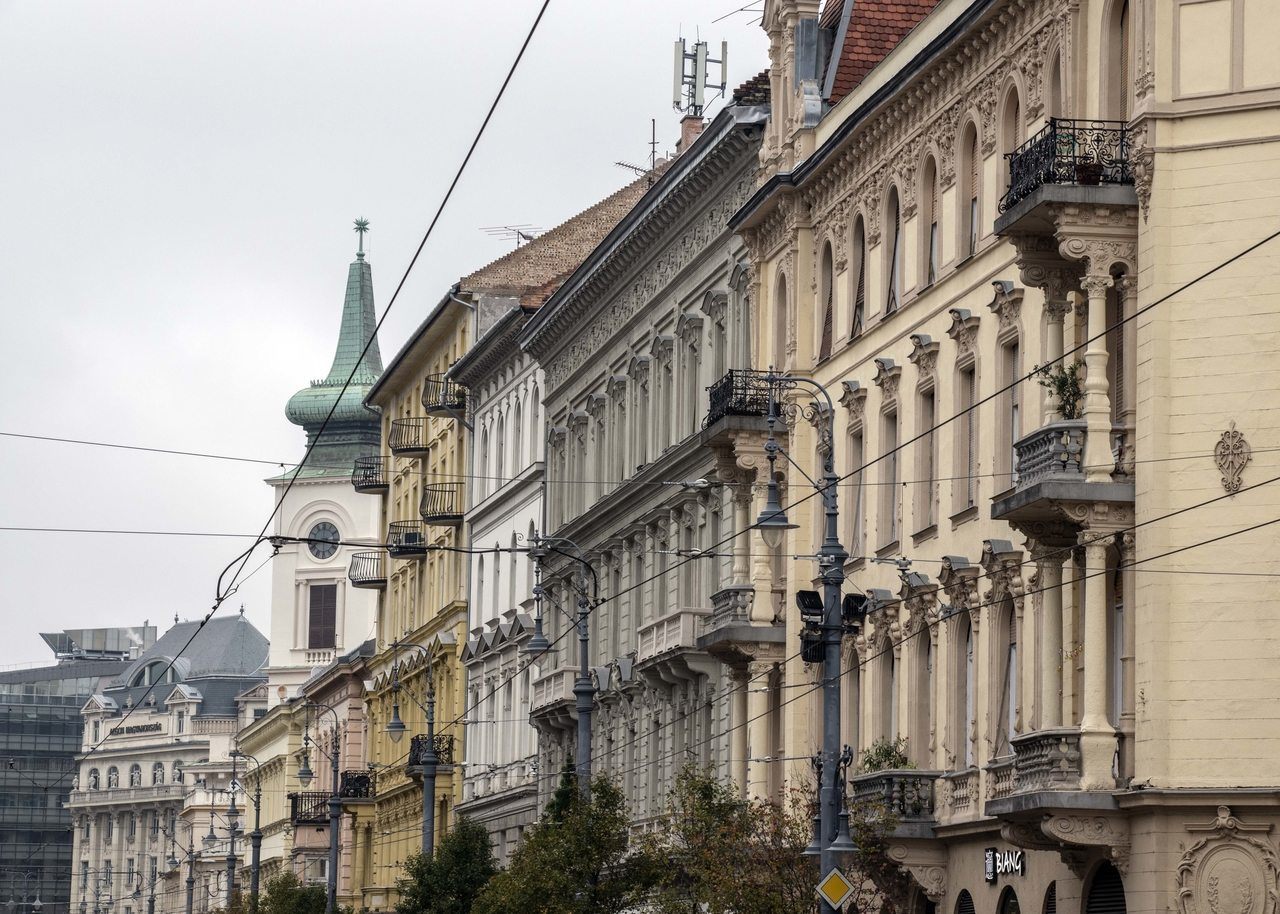The already cooling Hungarian housing market expects further decline
According to Deloitte Property Index, Europe’s highest price growth was recorded in Hungary in the past few years, but this trend changed last year, and the number of transactions started to decline for the first time in 6 years. Paris was the most expensive city in terms of transaction prices of new dwellings in 2019, and the country with the least affordable housing was the Czech Republic.
Deloitte Property Index can be considered one of the most notable and popular European real estate publications. The comparative report analyses factors shaping the residential and mortgage markets and compares residential property prices across various European countries and cities.
The coronavirus pandemic had an unquestionable impact on the residential real estate market across Europe. Due to financial problems and the decrease in construction activity, the number of initiated and completed dwellings dropped significantly, and residential prices showed considerable growth. 10 out of the 23 examined countries expect stagnation on the residential market in terms of price and a decline in terms of transaction activity. Countries that were hit hard by the virus, such as the United Kingdom or Croatia, and nations with already slowing markets, like Hungary, expect an accelerated decline in price development and overall market activity, Világgazdaság reported.
Average transaction price of a new dwelling
In 2019, 19 out of the 23 examined countries showed growth in prices of new dwellings. Luxembourg took the position of the most expensive country to buy a square meter of a new apartment with 7,145 EUR. France ranked second with 4,523 EUR/square metre, followed by Austria (4,176 EUR/square metre) and Norway (4,120 EUR/square metre). With 1,475 EUR/square metre, Hungary was in the second-lowest category along with Serbia and Portugal.
Deloitte Property Index indicated that
Luxembourg, France, Spain, Hungary and Slovakia were the only countries where the price growths exceeded 10% in 2019.
As far as the housing prices in the cities are concerned, Paris retained its position as the most expensive city with 12,863 EUR/square metre, and no other examined city had prices over 10,000 EUR/square metre. Tel Aviv took second place with 9,769 EUR/square metre, followed by Luxembourg City (9,565 EUR/square metre) and Münich (8,250 EUR/square metre). Among central European cities, Prague was the most expensive in terms of purchasing a new dwelling with 3,395 EUR/square metre.
Affordability of Own Housing
Deloitte Property Index compared the affordability of own housing in different countries by calculating the number of average gross annual salaries needed to purchase a standardised (70 square metres) new dwelling. The Czech Republic was the country with the least affordable own housing for the fourth time in a row; buyers have to work 11.4 years to be able to purchase a new dwelling. Serbia placed second with 11.3 years, and the best affordability rates were in Portugal (4 years) and Belgium (4.1 years).
Hungary occupied a position in the middle of the leader board with 7.6 multiples of yearly earnings needed to buy a dwelling.
Trends in Hungary
In 2019 there were approximately 10% fewer transactions than in 2018, and the decline was more significant in the cities. One of the main reasons behind this trend was the introduction of the Hungarian Government Bond Plus (Magyar Állampapír Plusz in Hungarian), making the yields on the housing market less appealing for investors. Villages experienced a moderately higher transaction number due to the extension of the Hungarian Family Housing Support Program (CSOK in Hungarian).
Despite the drop in the number of transactions, the residential price increase continued in 2019 in Hungary. Transaction prices of new dwellings increased on average by 11.5% and the older dwellings by 5.5%.
“The transaction market of new dwellings is characterised by the dominance of the centres, as nearly 50% of all the new dwellings for sale in Hungary were built in five districts of Budapest and in 12 main cities in the countryside. The […] housing prices still show higher spatial heterogeneity and disparities between individual settlement types,” the report added.

Read alsoChinese investors to disappear from Budapest’s real estate market?!
Featured image: Alpár Kató / Daily News Hungary
Source: vg.hu
please make a donation here
Hot news
What happened today in Hungary? – 19 April, 2024
British American Tobacco is expanding production in Hungary
Budapest mayoral candidate Vitézy promises thousands of units of affordable housing
Habits regarding tipping in Hungary may shock you
PM Orbán’s chilling warning: NATO is sliding into the war
VSquare: PM Orbán’s only son, Captain Gáspár, may be creating new Hungarian super secret service





4 Comments
The economic bubble is bursting. Hang on folks, it will be painful
In today’s Daily Mail, (UK): “UK house prices hit all time HIGH in post lockdown boom”.
Budapest lives from tourists only. The housing speculators who made money last years are starting to cry. The present is dark and the future is black.
Defying Gravity.
What is going to stop this trend now ?
The property market in Budapest is grossly over valued, and the market un-certainty being witnessed to-day, is just not a corrective adjustment, but driven, by this novel coronavirus, that will see prices fall, a minimum of 8% and greater, from current values.
There is a property market situation of over supply and a shortage, disappearance of buyers, that will not disappear in the immediate nor short term 24 – 36 month period.